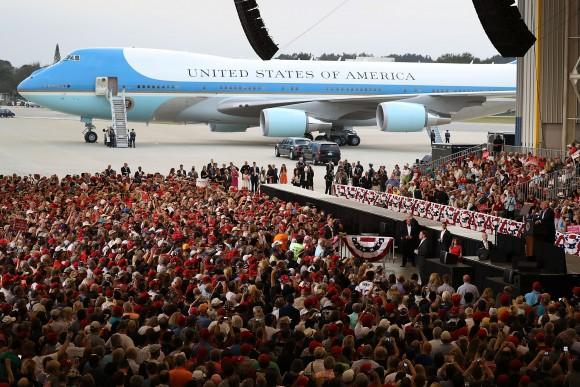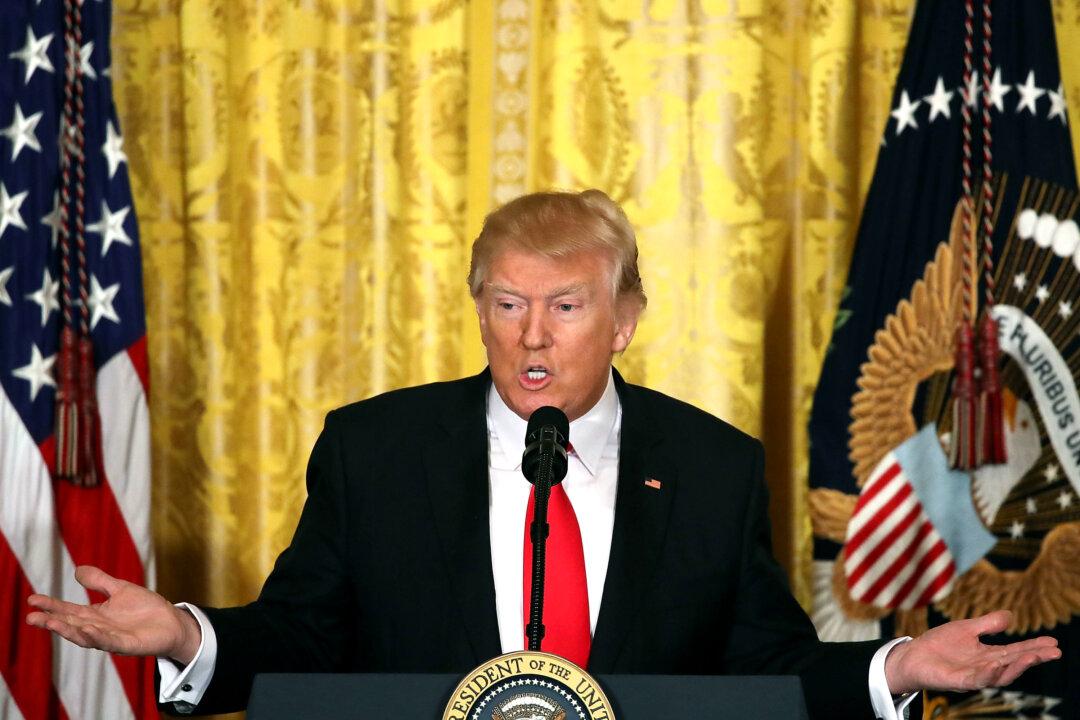If polls and legacy media outlets are to be believed, President Donald Trump’s approval rating has cratered—as compared with previous presidents in their first respective weeks in office.
But there’s one poll—one frequently cited by Trump and his administration’s officials, including press secretary Sean Spicer—that stands out: Rasmussen Reports.
In the past week, daily Rasmussen polls showed Trump’s approval rating above 50 percent—even hitting a 55 percent approval rating, with a 45 percent disapproval rating.
One might argue that the conservative-leaning Rasmussen is an outlier among a sea of polls that paint Trump in a negative light.
It underscores a seething disagreement and confusion in the polls and among pundits as to how popular—or unpopular—Trump actually is.
For his and his administration’s part, Trump has frequently pointed to ratings, crowd sizes, and polls. Last week, the president admonished the media once again when he mused in front of a rally in Florida: “Do you think that one media group will show the crowd?” (CNN, Fox, and others panned the camera around to show the crowd size).






